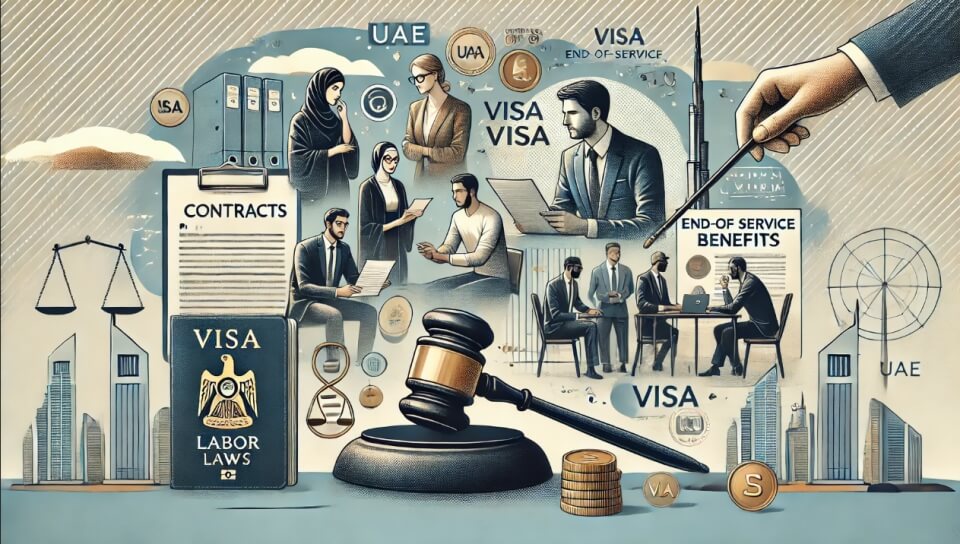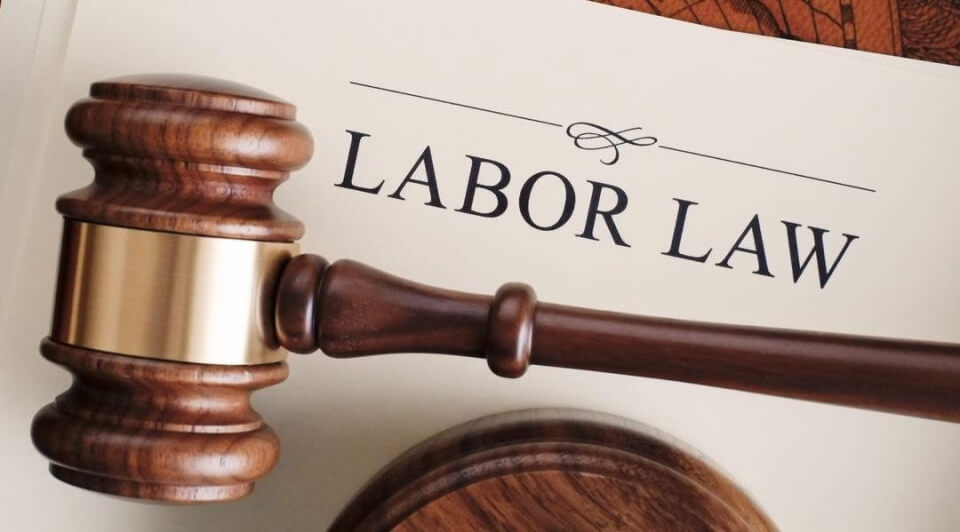Legal blog
Understanding Labour Laws in the UAE: EOSB, Visa Status & Employment Rights

Today, we break down labor laws in the UAE, covering end-of-service benefits, visa regulations, and employment rights. Whether you're an employee or an employer, this guide keeps you informed.
1. End of Service Benefits (EOSB)
Employees who complete at least one year of service are entitled to gratuity:
- 1-5 years: 21 days’ basic salary per year.
- 5+ years: 30 days’ basic salary per year (capped at two years’ salary).
- Resignation vs. Termination: Resigning before five years may reduce entitlement.
- Employers cannot unlawfully deduct gratuity.
Refer to Federal Decree-Law No. 33 of 2021 for full details.
2. Visa Status & Employment
- Employment Visa: Required for expatriates, sponsored by the employer.
- Freelance Visa: Allows independent work without a sponsor.
- Golden Visa: Long-term residency for investors and skilled professionals.
- Visa Cancellation: After termination, employees have 30-60 days to change status.
- Illegal Employment Risks: Working without a valid visa can lead to fines and deportation.
Ensure your visa is always valid and compliant with UAE laws.
3. Employee Rights & Employer Responsibilities
Employee Rights:
- Written contract, timely salary, leave entitlements, safe workplace, legal recourse.
Employer Responsibilities:
- Valid contracts, work hour compliance, health insurance, fair termination policies, visa processing.
Violations lead to penalties and legal disputes.
4. Labour Disputes & Legal Support
For disputes, file a complaint with MOHRE:
- Submit a complaint online or in person.
- Mediation attempt.
- Labour Court if unresolved.
- Seek legal assistance for fair representation.
Conclusion
Understanding gratuity, visas, rights, and dispute resolution is key for all employees and employers in the UAE.
Written by:
Galal Hussein | Galal Hussein Legal Consultancies & Advocates

This publication is for general information purposes only. It does not purport to provide comprehensive full legal or other advice.
Legal Advice Middle East and the contributors accept no responsibility for losses that may arise from reliance upon information contained in this publication. This publication is intended to give an indication of legal issues upon which you may need advice.
Full legal advice should be taken in due course from a qualified professional when dealing with specific situations.





